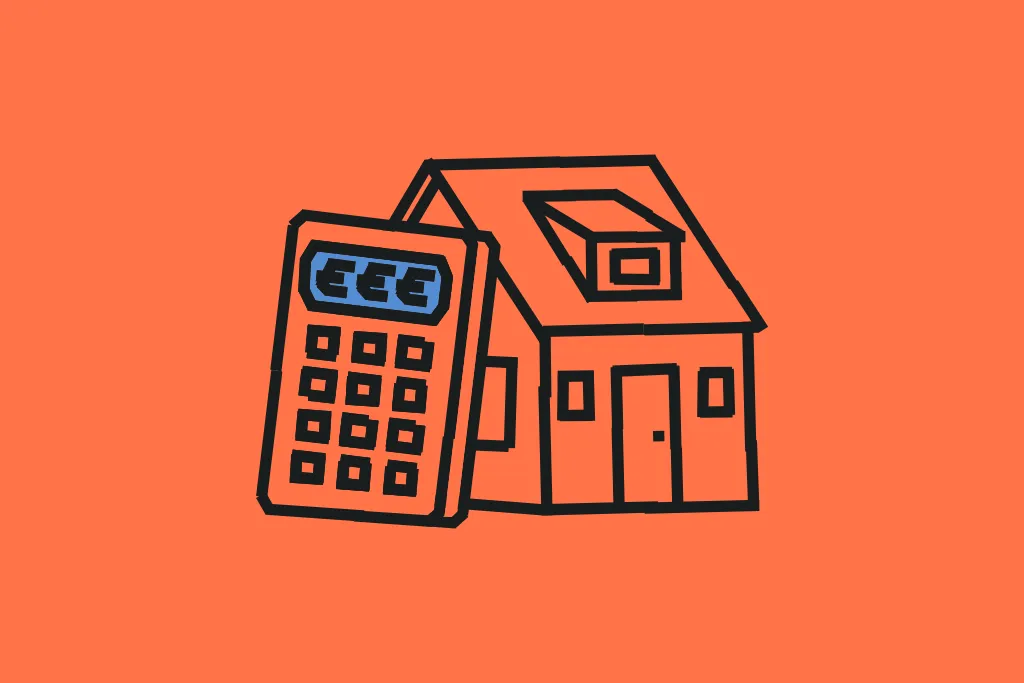When is withdrawing surplus value wise?
Using surplus value sounds appealing, but it's not smart in every situation. It depends on your goals, your financial situation and your home. Below you can see at a glance when withdrawing equity is usually a good idea and when it's better to wait:
| Surplus value withdrawals at | Do not withdraw surplus value at |
|---|---|
| You use it for a remodeling or preservation project | You don't have a clear purpose with the money |
| You pay off expensive loans with it | Your income is uncertain or irregular |
| You want to retire early or supplement your pension | You're still stuck in an expensive fixed rate period |
| You help your child with a gift for a first home | You use it for luxury expenses or vacations |
| You continue to live in your current home and have stable monthly expenses | You already have a high mortgage or an interest-only loan |
| Home value has increased and you have sufficient excess value | Interest rates are high and your monthly expenses will be substantially higher |
| You get good advice on a new or additional loan | Your surplus value is fully withdrawn without a buffer |
Are you still in doubt about whether to withdraw your capital gain? In the following headings you can read why it is wise or unwise to withdraw equity in each situation. In this way you can make up your own mind.
{{cta}}
When to withdraw surplus value?
Withdrawing surplus value can be a smart choice, if you do it with a purpose. In many cases, it gives you more financial room, without having to move or draw on savings. But when is it really wise?
Below are five situations where taking advantage of excess value fits a well thought out plan. Do you recognize yourself in them? Then you are probably on the right track.
- Home improvement or sustainability
- Pay off loans or existing debts
- Donating surplus value
- Stable income and low interest period
- Quitting work or supplementing retirement
1. Home improvement or preservation
Is a remodel on your list? Then using the excess value is often a logical step. You invest in your home and increase the home value at the same time. Think about a dormer window, an extension or insulation. Energy-saving measures such as solar panels or a heat pump are also smart choices. In some cases, you can even borrow more than usual. This way you earn back your investment little by little.
2. Pay off loans or existing debts
Many people use their excess value to create financial peace of mind. Do you still have a personal loan or revolving credit outstanding? Then you usually pay more interest on those than on your mortgage. By paying these off with a higher mortgage, you lower your monthly expenses. Your total debt stays the same, but your monthly costs go down, and you notice it right away.
3. Donate surplus value
The housing market is tough, especially for first-time buyers. Want to help your child with a first home? Then you can cash in part of the excess value. You can donate that amount or use it through a family mortgage. And yes: a gift is tax-free up to a certain amount. In this way, you not only give your child a chance, but also a head start on buying a new home.
4. Stable income and low interest period
Withdrawing surplus value means your monthly expenses go up. That's fine, if you can bear them. Do you have a steady income and are in a favorable fixed-interest period? Then a higher mortgage is often not a problem. You can increase your existing mortgage or take out a second mortgage. Have a financial advisor look at it with you. That way you can be sure it fits your situation.
5. Quitting work or supplementing retirement
Sometimes you want to work less or retire earlier. Have you built up enough surplus value? Then you can use it to supplement your income. For example, with an extra mortgage or an endowment mortgage. You continue to live in your current home. But you use your built-up capital to live more freely now. Do take into account additional costs and higher monthly charges.
Are you using the surplus value on your home to build something valuable, such as your home, your future or your family? If so, it's often a wise choice. But there are also situations in which withdrawing equity is less smart. In the next headline, you'll learn when it's better to wait to withdraw equity.

When not wise to withdraw surplus value?
Withdrawing surplus value sounds appealing, but not every situation is suitable for it. In some cases, it actually creates more stress, a higher mortgage or unnecessary debt. Having doubts? Then see if you recognize yourself in the situations below:
- No clear purpose for the money
- Uncertain financial situation
- You have high or no-repayment mortgage
- Using money for luxury expenses
- High interest rate or unfavorable fixed rate period
1. No clear purpose for the money
Do you want "just a little extra space" or "something in reserve for security"? Then it's better to wait. Using excess value without a concrete plan can lead to impulsive choices. And before you know it, you'll have a higher mortgage, but no better life. Therefore, first decide what you want to use the surplus value for and whether it is really necessary.
2. Uncertain financial situation
Are you just starting out as a self-employed person? Do you have fluctuating income? Or do you expect to earn less? Then withdrawing excess value on your home is risky. Your monthly expenses increase while your income is uncertain. This increases the likelihood that you will eventually run into trouble. In that case, keeping your current mortgage is often a better choice.
3. You have high or grace-free mortgage
Is your mortgage already near its maximum borrowing capacity? Or do you have an interest-only mortgage? Then additional borrowing often becomes more expensive and risky. Especially if you are already paying off very little. Your debt increases, while your home value may decrease. If you are in this situation, get good advice from an independent mortgage advisor.
4. Using money for luxury expenses
A new car. A faraway trip. Or that expensive kitchen that is just a little too fancy. Of course you may allow yourself something. But withdrawing excess value for luxury or convenience rarely provides financial peace of mind. You are stuck with monthly installments for years, only to do something nice now. You're better off saving for these luxuries or finding cheaper solutions.
5. High interest rate or unfavorable fixed rate period.
Want to cash in excess value while mortgage rates are high? Then your monthly costs can rise significantly. Especially if you are still in the middle of a fixed interest rate period. The switch to a new mortgage often involves penalty interest or other additional costs. In such cases, it is smarter to wait until your mortgage interest rate drops or expires.
Taking on surplus value often sounds like an opportunity. But in the wrong situation, it turns into a burden. Do you doubt whether it suits your situation? Then get good advice from an independent mortgage advisor. They can tell you honestly whether it is wise to withdraw the surplus value, or better not.

Calculate home excess value
Before you decide whether you want to use the excess value on your home, you need to know how much excess value you have. Fortunately, calculating the excess value on your home is quite easy.
Surplus value is the difference between the home value and your remaining mortgage debt. Suppose your current home is worth €400,000. You still have €300,000 outstanding on your mortgage. Then your excess value is €100,000.
Home value - mortgage debt = excess value on your home
€400.000 - €300.000 = €100.000
You could possibly use that amount for a remodel, an addition to your pension or a new home. But beware, this is an estimate. The actual surplus value depends on several factors, such as your current mortgage, repayments and whether you can deduct mortgage interest. Also, if your home has increased in value because home prices are rising, that changes your math.
Are you curious about your exact excess value and how to calculate it properly? Then read our comprehensive article on calculating home equity.

Cost excess value withdrawal
Using surplus value sounds like a smart move. But withdrawing surplus value always comes with a cost. Part of it you pay up front as a one-time cost and the other part you see reflected in your monthly expenses. Here's what to consider when withdrawing equity:
- Mortgage Advice
- Appraisal fees
- Notary fees
- Bank closing costs
- Higher monthly expenses
1. Mortgage Advice
An independent mortgage advisor will help you make the right choice. You pay a one-time fee for this advice. Count on €3000 to €3500. So get good advice before you take out a new mortgage.
2. Appraisal fees
Your home needs to be reappraised. The bank wants to know how much your house is worth. Especially if house prices have risen. An appraisal report costs between €600 and €1100. Via homeup you can have a valuation report drawn up by a more independent appraiser for €850.
3. Notary fees
Are you taking out a new mortgage or modifying your existing mortgage? Then you have to go to the notary. He will draw up a new mortgage deed. This costs between €400 and €800.
4. Bank closing costs
When taking out a new loan or additional mortgage, you pay closing costs. This is usually around €250.
5. Higher monthly costs
You borrow an additional amount on top of your current mortgage. This increases your monthly expenses. You pay mortgage interest and repayment on the amount taken out. How much exactly? That depends on your mortgage interest rate, term and income. Whether you can deduct the mortgage interest also plays a role.
Want to know what your monthly charges will be when you withdraw a specific amount of surplus value? Then check out our articles on how much it costs to withdraw the surplus value:
- What is the cost of withdrawing €10,000 in excess value?
- What is the cost of withdrawing 20,000 in excess value?
- What is the cost of withdrawing €30,000 in excess value?
- What is the cost of withdrawing €40,000 in excess value?
- What is the cost of withdrawing €50,000 in excess value?
- What is the cost of withdrawing €100,000 in excess value?
In total, the one-time cost of withdrawing capital gains is usually between €4250 and €5150. The exact cost depends on your situation, your home and how you want to use your home's surplus value. Also consider your monthly expenses. The more you withdraw in excess value, the higher your monthly expenses will become. Want to know what this means for you? Ask an independent mortgage broker for advice on your situation.

Frequently asked questions about withdrawing surplus value
Is it smart to withdraw surplus value?
Yes, if you use excess value of your home with a clear purpose. For example, for a renovation, lower monthly costs or to supplement your pension. Be well advised whether it suits your income and mortgage.
Is it smart to withdraw the entire surplus value?
Usually, no. Taking the entire excess value increases debt and monthly expenses. You're better off using only what you need. That way you keep financial room for later.
Is it smart to use surplus value for remodeling?
Yes, often it does. A remodel can make your home more comfortable and more valuable. Think of insulation, dormer or extension. Using excess value is then cheaper than a separate loan.
Is it smart to withdraw surplus value to supplement your retirement?
Yes, if you have enough excess value and prefer to continue living in your current home. A top-up mortgage or additional loan provides financial leeway. You pay monthly interest, but often do not repay.
Is it smart to use surplus value for a new home?
Yes, especially if you move to a home that suits you better. You use your excess value as an input into a regular mortgage. That way you have less mortgage debt and often lower monthly costs.
Is it smart to withdraw surplus value for expensive study?
Sometimes. Going to college can be an investment in the future. But taking surplus value for education also means you'll have an extra loan and higher expenses. Have your situation carefully calculated by an advisor before you decide.
Is it smart to use excess value for donation?
Yes, especially if you want to transfer assets to your child. A gift from your excess equity will help you buy a house. Just be aware of how much you yourself still need for later.
Is a cash-out mortgage wise?
Yes, if you have a lot of excess value and want to continue living in your home. You receive money monthly, without moving. The mortgage debt is added up and settled when you sell your home.
What are the risks of excess value or charge-off mortgage?
Your mortgage debt increases, while your monthly payments often remain. If the value drops, there is less left for later. That's why you should get good advice before you decide.
How much excess value do I have on my house?
Subtract your mortgage debt from the value of your home. For an accurate amount you can have your house appraised. The average surplus value in the Netherlands is around €150,000, but this varies from property to property.

{{vragen}}




